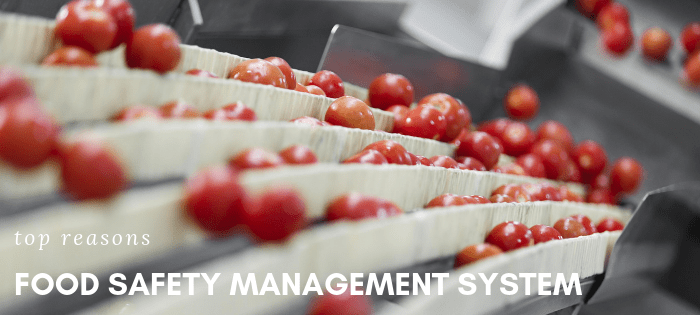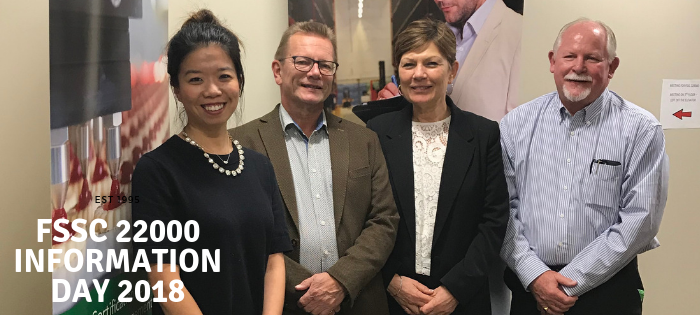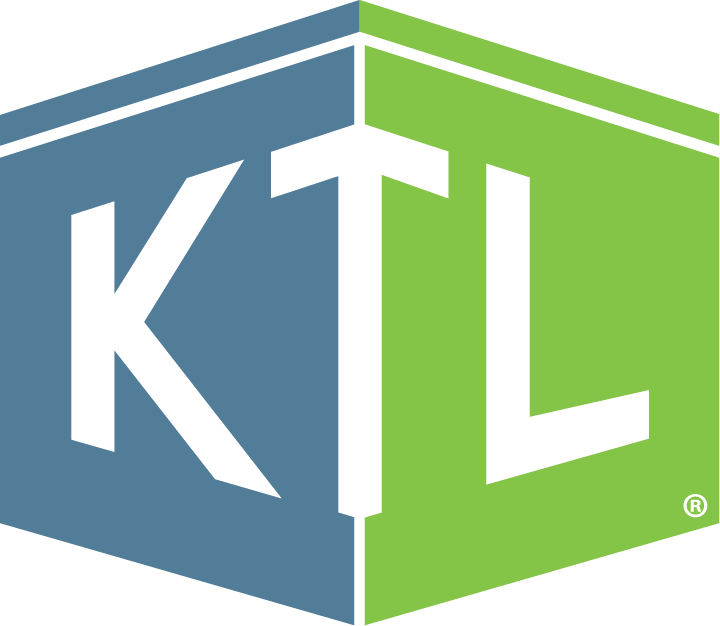
Overview of FSMA for Chemical Distributors
Join NACD and Kestrel on Thursday, April 4 at 12:00 p.m. (EDT) for a webinar on the U.S. Food and Drug Administration’s (FDA) Food Safety Modernization Act (FSMA). During this webinar, Kestrel’s Roberto Bellavia, Principal in Food Safety Compliance, will provide an overview of FSMA rules applicable to the chemical ingredients industry, focusing on the receiving, storage, production, blending, and transportation of these products. Register here.
This webinar is a precursor to an upcoming in-person NACD regulatory workshop during which Kestrel will cover the FSMA regulations in-depth. This workshop will take place on June 12-13 in Oak Brook, Illinois, immediately following the Central Region Meeting. Registration for the workshop is forthcoming.

IFS Focus Day: April 2019
IFS Focus Day Returns this Spring!
April 24, 2019 9:30 am – 3:00 pm
Delta Hotels Burnaby | 4331 Dominion St. | Firenze Room
Burnaby, BC V5G 1C7
Make plans to join IFS North America representatives Pius Gasser and Cheryl Sullivan; Bulldog Bag’s Alan Kenney; and AIB’s Siarl Dixon for our complimentary IFS Focus Day.
Agenda:
9:30 am: Registration
10:00 am: Welcome
10:30 am: Why IFS
11:00 am: The Certification Experience
11:15 am: FSMA Compliance Update
Noon: Lunch
12:45 pm: Risk Assessment
1:45 pm: IFS in the Eyes of a Certification Body (CB)
2:15 pm: IFS in North America
2:30 pm: Discussion
3:00 pm: Adjourn
To register, email sullivan@ifs-certification.com
Note: Space is limited for this FREE event!
Sponsored by Kestrel Management | GCP Consulting | AIB International

Comments: No Comments
Top Reasons to Pursue a Food Safety Management System
Designing and implementing a compliant Food Safety Management System (FSMS) can help organizations improve in many areas beyond the system’s defined tasks. It is critical for management to align the food safety objectives with the business needs for a successful and meaningful program implementation. Here are some of the top reasons why companies that work in the food industry may want to pursue developing and implementing an FSMS:
10. Identify and categorize the organization’s food safety risks.
Once this information is known, management can prioritize and decide how to eliminate or reduce business risks and liabilities to acceptable levels. These risks are often better controlled through strict management accounting. As a bonus, employees will become more attuned to thinking about risks and helping management improve overall operations.
9. Develop work instructions and/or procedures to guide employees’ actions and to ensure that each food safety task is completed in a disciplined manner and approved by management.
This will reduce the risk to an organization of an employee accidentally making a food safety mistake that causes the employee or others to be harmed (or worse). It also reduces the company’s risk of government inspections, fines, poor public perception, and loss of business due to a possible recall.
8. Assure management that they, in fact, know and understand the regulatory food safety requirements that must be met daily.
These requirements can be a driver of continual improvement by ensuring that the company has up-to-date procedures and work instructions for employees to follow every day.
7. Develop meaningful goals and objectives that drive food safety performance improvements and possibly reduce additional costs.
Each business will have different goals and these goals will likely change each year. Goals assure continuous improvement in food safety performance for the business over time.
6. Create a strong training and educational program that stems from well-written procedures and work instructions and that clearly defines the company’s requirements.
A well-trained workforce is a motivated and happy workforce. Turnover is reduced, accidents and incidents decrease, and production efficiencies increase. Employees are very aware when an organization takes time to ensure that each job requested is completed in the safest manner possible.
5. Develop appropriate monitoring and measurement practices.
Once all food safety requirements (e.g., FSMA, USDA, GFSI) are known and understood, the organization will be able to gauge food safety performance based on scientific data and regulations, and then guide the organization’s actions in a direction of continuous improvement and compliance.
4. Verify the FSMS is functioning as designed and implemented.
By continuously auditing each food safety program and function, the organization will discover issues of concern and non-conformances prior to an incident or agency/certifying body finding. Routine, non-biased audits allow the company to choose a timeframe that will help improve the situation without undue influence by outsiders.
3. Monitor and trend issues of concern and/or non-conformance and the actions used to rectify them through a fully functioning corrective/preventive action program.
As employees watch management fix problems, they will learn that management is concerned about continuous improvement. This will prompt employees to start making their own improvement suggestions. These suggestions will further drive improvement in areas outside the original FSMS.
2. Evaluate the business model and the FSMS in a holistic fashion.
By using this self-reflection and identifying improvement opportunities, management can direct responsibilities for improvement actions across many departments of the company. Each of these improvement opportunities has the potential to help the bottom line and reduce the possibility of a food safety liability now or in the future.
1. Know that the company has done everything to maintain the business in a manner that meets all food safety rules and regulations.
The last and most important benefit for an organization that goes through the process of designing and implementing a compliant FSMS is knowing that the organization has done everything possible to maintain its business in a manner that meets all food safety laws, regulations, and statutes every day the doors are open for business. To a business owner, that knowledge is priceless. This is how brands are built and how they maintain the promise of food safety to consumers.

Comments: No Comments
The Role of ERP in Food Safety Compliance
Is your organization faced with these challenges?
- Significant industry disruptions with changing consumer demand
- Growing complexity in supply chains
- More stringent food safety mandates
We can help. Through Kestrel’s strategic alliance with Ultra Consultants, our whitepaper—The Role of ERP in Food Safety Compliance–provides in-depth insight to address these challenges.
You’ll learn:
- How to leverage enterprise technology to assist in food safety compliance.
- How to implement the appropriate processes and systems to help manage recalls, reporting, and document control.
- What Enterprise Resource Planning (ERP) system requirements are critical to help today’s food processor.
- Why gaining flexibility to respond to changing regulatory requirements is so important.
Download The Role of ERP in Food Safety Compliance today to get a better understanding of the role ERP systems can play in achieving food safety compliance.

Comments: No Comments
Risk-Based Standards Workshop: March 27
Don’t miss this free workshop hosted by DNV GL in Chicago on Wednesday, March 27, 2019.
Risk-Based Standards Workshop – How Emerging ISO Requirements Are Impacting Business
Environmental, Product Compliance, Health & Safety, Supply Chain & Food Safety
Join DNV GL Business Assurance North America Regional & Technical Management, Global Accreditation Management, as well as DNV GL Digital Solutions and key industry experts for this day-long workshop. Presenters will provide lessons learned about the following standards and topics: ISO 14001, ISO 45001, Product Compliance, and Supply Chain.
The second half of the day will feature a workshop on Food Safety. Kestrel Principal Roberto Bellavia will be talking about mitigating allergen risks. Other topics include supply chain management, food safety culture, and food fraud.

Comments: No Comments
March 7 Webinar: Food Safety Compliance & ERP
Showcase Webinar – Food Safety Compliance and ERP:
How to Stay on the Safe Side
Thursday March 7, 2019 1 p.m. CT
Food and beverage processors face significant disruptions with changing consumer demand, growing complexity in supply chains, and ever stringent food safety mandates.
Today’s food and beverage processor must implement the appropriate processes and systems that not only manage recalls, reporting and document control, but also offer the flexibility to respond to changing regulatory requirements.
Kestrel and Ultra Consultants are partnering to offer you an educational webinar session taking place March 7, 2019 to learn what it takes to integrate compliance programs into core business processes and systems.
The session details how to meet a pressing need – selecting and implementing the right technology to meet strict food safety mandates.
Key Takeaways:
- Understand the key food safety trends and regulations impacting the sector.
- Get an overview of strategies to help meet and sustain food safety compliance, certifications and regulatory mandates.
- See the must-have ERP features to help reduce operational risks, achieve food safety requirements, and realize sustained value through effective use of enterprise technology.
Who Should Attend?
- C-level leaders at food and beverage processing companies
- Quality, Compliance, Finance leadership
- ERP, IT Directors
- Operations Directors, Production leadership
- Anyone responsible for overall business process improvement

Comments: No Comments
Upcoming Coffee & FSVP Workshops: March 2019
Kestrel Management is teaming with Firedancer Coffee Consultants
to bring you two unique training opportunities this March in Rolling Meadows, Illinois.
Space is limited, so don’t miss your chance to register now!
 Specialty Coffee Association’s Coffee Skills Program: Green Coffee Foundations: March 20, 2019
Specialty Coffee Association’s Coffee Skills Program: Green Coffee Foundations: March 20, 2019
Join Firedancer Coffee Consultants for the SCA Coffee Skills Program’s one-day Green Coffee Foundations course. This introductory course covers key concepts surrounding green coffee, from growing the plant through processing, shipping, and storage, to arrival at a roastery. This course has been adapted to focus on known hazards in the supply chain of coffee, where they occur, and/or how they can be controlled or eliminated to help set the stage for the two-day FSVP course.
This is a certificate program from the Specialty Coffee Association, with a written and practical test at the end of the day. Cost of the course is $400. Use Code KM2019-25 when registering for a 25% discount on tuition fees. REGISTER NOW!
 Foreign Supplier Verification Program (FSVP) Workshop: March 21-22, 2019
Foreign Supplier Verification Program (FSVP) Workshop: March 21-22, 2019
The FDA is starting to inspect importers as of September 2018. It’s time to be prepared. This two-day course is focused on building plans for green coffee producers, exporters and importers, but will cover the full extent of the law. Kestrel will lead attendees through the requirements for building a FSVP. The last half day will be spent building a model plan as a group. A prerequisite class is not required for the FSVP course, but having a strong understanding of FSMA, Good Manufacturing Practices, Hazard Analysis, and Preventive Controls would be beneficial.
Cost of the course is $895 per person, which includes a workbook, templates, lunch both days, and a certificate in FSVP. REGISTER NOW!

Kestrel Forms Alliance with Ultra Consultants
Expanded services help food and beverage processors select, implement enterprise technology
to reduce risk, meet food safety mandates.
Kestrel is pleased to announce our partnership with Ultra Consultants, Inc. (Ultra) to provide food safety compliance and remediation advisory services to North American food and beverage processors. The expanded services created through this relationship will help food and beverage processors better select and implement enterprise technology to reduce risk and meet food safety mandates by effectively integrating compliance programs into core business processes and systems.
Meeting Industry Needs
Food and beverage processors face significant industry disruptions with changing consumer demand, growing complexity in supply chains, and more stringent food safety mandates. Today’s food and beverage processor must implement the appropriate processes and systems that not only manage recalls, reporting and document control, but also offer the flexibility to respond to changing regulatory requirements.
Kestrel’s Bill Bremer, Principal, Food Safety Compliance, reinforces, “We’ve heard from leading food and beverage processors that there is a critical need for expertise and tools that help meet ever-escalating food safety requirements. This alliance will enable food and beverage processors to more efficiently reduce operational risks, achieve food safety requirements, and realize sustained value through effective use of enterprise technology.”
Expanded Services
As part of this strategic alliance, food processors will benefit from advisory services that help meet and sustain food safety compliance, certifications, and regulatory mandates by applying proven methodologies in the following areas:
- Food and Beverage Compliance Systems Integration/Scaling Support
- Food and Beverage Compliance Certification Support
- Compliance Remediation
- Food Safety Business Process Improvement (BPI)
“These expanded offerings complement Ultra’s existing business process improvement services,” explains Jeff Carr, CEO and Founder of Ultra Consultants. “The food safety services also leverage proven methodologies in the enterprise technology selection, evaluation and implementation Ultra’s independent advisers have delivered over the last twenty-five years. More importantly, these expanded services help food processors meet a pressing need – selecting and implementing the right technology to meet strict food safety mandates.”
Read more about our expanded offerings.
About Ultra Consultants
Ultra Consultants is an independent research and enterprise solutions consulting firm serving the manufacturing and distribution industries throughout North America, as well as companies with global operations. Since 1994, Ultra has delivered enterprise technology expertise and process management to drive business performance improvement for our clients. More information on the company’s services, leadership, industry verticals served, and software vendor relationships can be found at www.ultraconsultants.com.

Comments: No Comments
FSSC 22000 Information Day Exceeds Expectations
Kestrel Management recently teamed with FSSC 22000, a global GFSI-recognized food safety certification owner, to host an Information Day in Schaumburg, Illinois, on November 13, 2018.
Cor Groenveld, Market Development Manager, and Jacqueline Southee, North American Representative, both with FSSC 22000, presented on the implications and benefits of the recent updates to FSSC 22000, how the revised ISO 22000 international standard will impact FSSC 22000, the future of food safety management, how the new FSSC certification can benefit food safety programs, the Global Markets Program, and FSMA alignment.
“This Kestrel-hosted event exceeded all expectations,” said Kestrel Principal Bill Bremer. “It was the first time a global scheme under GFSI presented in an independent focus session such as this. It was a unique opportunity for approximately 35 attendees from food industry companies, certification bodies, and other food safety professional services firms to hear directly from one of the key schemes under GFSI.”
***
The FSSC 22000 Food Safety System Certification provides a framework for effectively managing food safety and quality responsibilities. FSSC 22000 demonstrates a company has a robust and effective food safety management system (FSMS) in place to meet the requirements of regulators, food business clients and consumers.
The FSSC 22000 Scheme is managed by the independent Foundation FSSC 22000. FSSC 22000 is recognized by the Global Food Safety Initiative (GFSI) and developed in response to the needs of the international food sector. FSSC 22000 is fully based on the international, independent standards: ISO 22000, ISO 22003 with sector specific technical specifications for Prerequisite Programs (PRPs) and additional Scheme requirements.
The first version of the FSSC 22000 Scheme was published in 2009. Since then almost 18,000 sites (reference date: January 2018) have been certified and new scopes have been added. Mid 2017 Version 4.1 of the Scheme has been published.

Comments: No Comments
IFS Focus Day 2019
IFS Focus Day Is Back!
January 10, 2019 10 am – 4 pm
US Foods Office Complex | 9399 Higgins Road | 1st Floor, Scoop Room
Rosemont, Illinois
Make plans to join Stephan Tromp and Pius Grasser from IFS, and Kestrel Management’s Bill Bremer for our complimentary IFS Focus Day 2019.
Agenda:
10:00 am: Registration
10:30 am: Welcome
10:45 am: Why IFS
11:15 am: FSMA Compliance
Noon: Lunch
12:45 pm: Risk Assessment
1:45 pm: Intro to IFS HPC
2:30 pm: Break
2:45 pm: IFS North America 2019
4:00 pm: Adjourn
To register, email cheryl@csconsultants.ca
Note: Space is limited for this FREE event!
Hosted by Kestrel Management | Sponsored by US Foods and NSF

